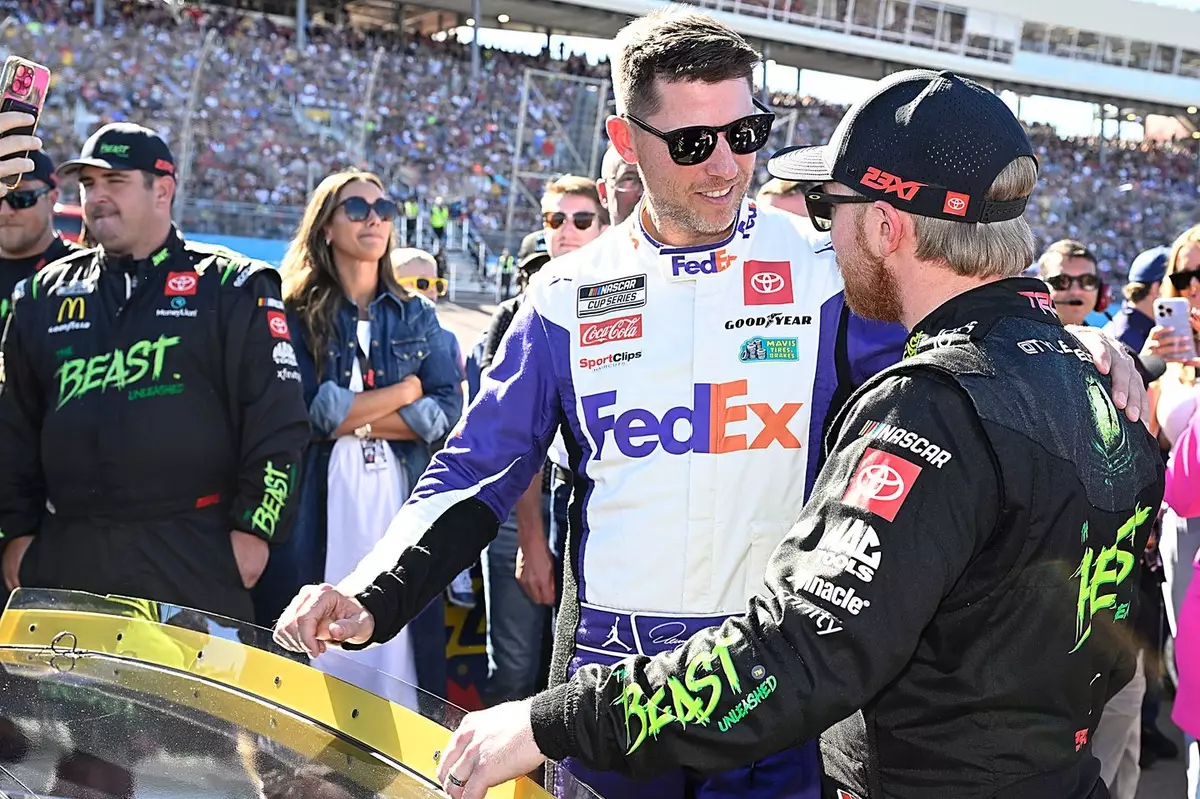The world of motorsport often finds itself in the crosshairs of legal disputes, and the ongoing antitrust lawsuit against NASCAR is no exception. The recent ruling granting 23XI Racing and Front Row Motorsports (FRM) a preliminary injunction to retain their racing charters for the approaching 2025 season has significant implications for the operations of these teams and the future landscape of stock car racing in the United States. As tensions rise with the France family, who have long been associated with NASCAR’s governance, the intricacies of this legal battle uncover deeper issues of market power, team autonomy, and competitive fairness.
In legal terms, a preliminary injunction serves as a protective measure to prevent irreparable harm while litigation is ongoing. In this case, 23XI Racing and FRM initially faced setbacks when their request for an injunction was denied in a hearing on November 8. The judge at that time found the teams had not adequately demonstrated that losing their charters would lead to irreparable harm, a fundamental criteria under which injunctions are granted. However, the tables turned when the teams revised their approach, opting for a modified request that focused on contesting specific elements within the 2025 Charter Agreement rather than seeking blanket approval for their charters.
This strategic pivot highlights the dynamic nature of courtroom tactics and underscores the critical importance of understanding the legal landscape when navigating complex disputes. The release clause embedded in the Charter Agreement, which silences antitrust claims post-signing, became a focal point of the legal battle, indicating how contractual agreements can merge with antitrust laws to create a convoluted legal setting.
The recent ruling from Judge Kenneth D. Bell allows both teams to retain their charters while the lawsuit unfolds, providing a temporary but crucial reprieve. It permits them to finalize plans for expanding their operations, including the acquisition of a third charter from the dissolved Stewart-Haas Racing team. This move is particularly significant for 23XI Racing, which has already announced the introduction of a third car driven by Riley Herbst, and expects FRM to follow suit, potentially fielding Zane Smith in their expanded lineup.
Such developments not only benefit the teams involved but also ripple through the broader landscape of NASCAR, affecting driver contracts, sponsorship deals, and fan engagement. The concerns expressed by various drivers under 23XI and FRM regarding job security further amplify the gravity of this situation. The precariousness of their contracts, especially with the looming threat of being voided should they compete as open teams, adds an unsettling layer of uncertainty that could impact both performance and morale.
A pivotal aspect of Judge Bell’s ruling is the court’s acknowledgment of NASCAR’s substantial control over the premier stock car racing market in the U.S. Described as holding monopsony power, NASCAR exercises extensive authority over which teams can participate and thrive at the upper echelons of stock car racing. The court’s assertion that “NASCAR possesses monopoly/monopsony power” substantiates the teams’ central claims in their antitrust lawsuit, shifting the legal narrative towards a more compelling argument that questions the legitimacy of NASCAR’s operational frameworks.
Furthermore, the court dismissed arguments positioning Formula 1 and IndyCar as viable alternatives to NASCAR, affirming that the unique character of stock car racing makes it a distinct competition domain. This judicial perspective not only supports the teams’ case but also juxtaposes NASCAR’s practices against principles of competitive fairness, highlighting the need for accountability in how racing leagues are governed.
As the legal landscape continues to evolve, NASCAR remains in a precarious position. The anticipated appeal from NASCAR could introduce further turbulence as the parties prepare for the 2025 season. The ramifications of this antitrust lawsuit will likely resonate beyond just the immediate future, as they may catalyze broader discussions on monopoly power, team autonomy, and the structure of sports leagues in America. For now, 23XI Racing and Front Row Motorsports can breathe a sigh of relief, albeit temporarily, as they focus on preparing for the challenges of the upcoming racing season amidst a backdrop of uncertainty that could reshape their futures.


Leave a Reply